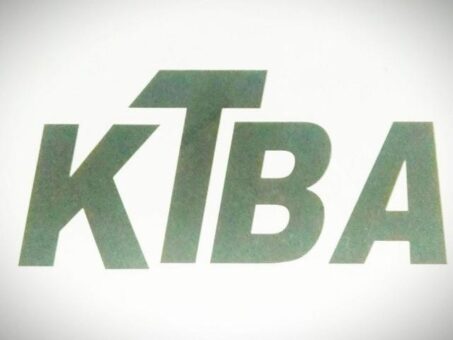Calculating valuation of immovable property for deemed income under Section 7E of the Income Tax Ordinance, 2001 is remained an uphill task in completing income tax return for tax year 2022.
Syed Rehan Hasan Jafri, President, Karachi Tax Bar Association (KTBA) expressed these views while talking to PkRevenue.com. He said that only couple of days are left for the last date for filing income tax return for tax year 2022 yet this issue is remained unaddressed besides many other issues highlighted by the tax bar.
Jafri said the bar had stressed the need for incorporating the values given under the forty-two (42) notification (SROs) issued by the FBR in the month of March 2022 for property valuations under Section 68 of the Ordinance in the IRIS.
READ MORE: FBR extends return filing date up to October 31, 2022
“It was recommended that those valuation tables were to be incorporated in the back end working of the income tax return in the IRIS after which the calculation of tax under Section 7E could be calculated automatically by the system, based on the description of property incorporated by the taxpayer in its wealth statement,” he added.
If it had done, it would ensure swift and correct computation of 20 per cent tax on 5 per cent value under Section 7E of the Ordinance and would avoid any standard deviation therefrom.
Jafri said a new 7E annexure has been introduced with a set of requirement, which has been ventured in the IRIS and what now has become a bigger concern in context of Section 7E i.e. the new 7E Annexure.
“This annexure has lately been introduced in IRIS on October 13, 2022.”
The KTBA holds a considered view that it is unnecessarily a detailed format for a taxpayer or his advisor to fill and that too in these last days of tax returns filing.
READ MORE: FBR allows refund adjustment to facilitate return filing
The new annexure contains all the possible and imaginable categories of properties one could have. A basic list included: i. Agricultural Property; ii. Commercial Property; iii. Industrial Property; iv. Residential Property; v. Educational Property; vi. Health Property; vii. Natural Property; viii. Public Property; ix. Religious Property; and x. Mixed Use Property.
Apart from the first four (04) categories, the rest of the six (06) are not only unheard of in the domestic culture or tax laws of the country but these are not even owned by an individual in the first place. “What is worrisome is that there are duplications and triplications to be filled in for the same property, which will surely give rise to issuance of uncalled for show cause notices by the department. The rational, therefore, needs to be thrashed out,” he demanded.
The Annexure incorporated vide SRO 1892 of 2022 dated October 13, 2022, with its fine details may have either been designed bespoke or borrowed from external source but only suitable to be made applicable where there is plenty of days and man-hours left.
READ MORE: FPCCI seeks statutory time for return filing after error removals
The details of properties which have been required to be filled in, are details consisting of the following, which, your office would acknowledge, are completely irrelevant for purpose of valuation of property under Section 68 of the Ordinance.
i. Town Area of property
ii. Tehsil of Property
iii. Age of property
These are superfluous fields which have been required to be filled without any impact but have been made mandatory fields as without filling which one cannot move forward in IRIS and cannot proceed to file return. “This is a serious deterrence,” Jafri added.
Needless to mention that the size of the property and size of the built up or covered area with the name of City and location in the city are the only necessary data for valuation of property under the Ordinance as that is what is precisely needed not the town and tehsil, which is other as well is a cumbersome detail to be extracted.
It also merits a mention that cumbersome details have been required to be punched in even in cases where there would not arise any liability on account of Section 7E or where the properties of the taxpayer are exempted from the purview of the provision. “We understand that submission of details of the following exempted properties should also be exempted, which will actually be a facilitation in filing of return at least for those who do not have to pay this 1 per cent tax.”
As for the valuation tables and the valuation SROs, it is critical for us to apprise your office that picking up the value from the SROs is not as easy as has recently been spelt out by the FBR. There are altogether forty-two (42) notifications (SROs) for the purpose, which were issued in the month of March 2022.
Out of these forty-two (42) SROs, twenty-eight (28) have been amended to date. Upon finding the applicable SRO for any city the portal provides you with the latest one. One consequently would need to search and recheck for the older SRO once again on the website. This is certainly time taking and painstaking exercise.
Secondly if a certain SRO has been amended, there is no amended SRO available in the cache, consequent to which the propensity to commit an error by taking the valuation from the older SRO gets certain.
In order to avoid such an impending consequence, the FBR should provide the final amended SRO of valuation failing to which the taxpayer will have to keep switching from older SRO to amended SRO or will commit the suspected error. This goes without saying as how much time consuming this exercise can become besides being tedious and painstaking.
READ MORE: FBR advised to extend tax return filing date for three months
Rehan Jafri pointed out the size of notifications related to valuations.
It should not loose the sight of the regulator that apart from the amended Notifications, there are few SROs, which are unusually lengthy and detailed. This makes the job of the taxpayers even more arduous to keep sifting the pages to find for the precise location of his property therein. It would be worthwhile to enlist hereunder few of these:
i. Bahawalnagar is of 191 pages
ii. Bahawalpur is of 51 pages
iii. Multan is of 4,593 pages
iv. Faisalabad is of 4,712 pages
v. DG Khan is of 4,722 pages
vi. Quetta is of 28 pages
vii. Lahore is of 31 pages
These are few instances as to the ordeal taxpayer will have to go through for filing requirements, which is by any stretch of rational thinking is unwarranted.
And all of this has fallen due merely in the last fifteen days of October. The timing of introduction of the 7E Annexure requires reconsideration. The tax Return and their other Annexure were though introduced within the legal time frame on June 30, however, the 7E Annexure was introduced on September 3, 2022, vide SRO 1829 of 2022 in draft form and finalized and uploaded on IRIS just after 10 days on September 13, 2022 vide SRO 1891 of 2022. This is not less than three and a Half (3.5) months late.
Jafri said that the FBR should direct either the field formation or the relevant IT team to prepare at least a tutorial or to say a demo presentation for the basic level assistance of the taxpayers. The same can be placed on the website.


